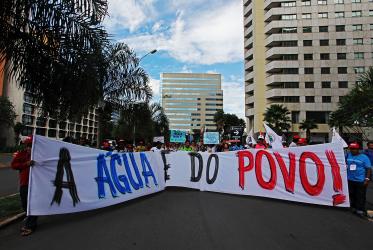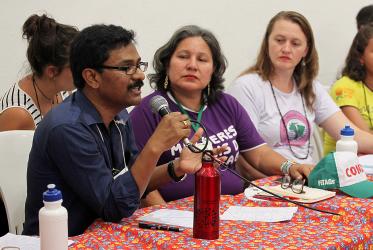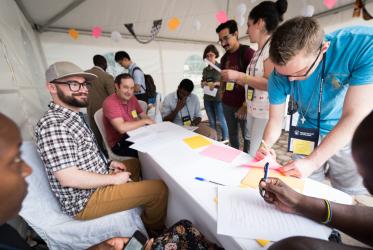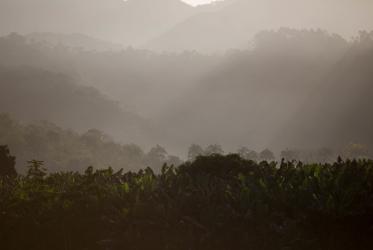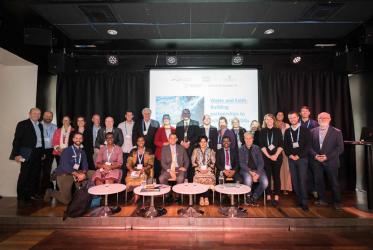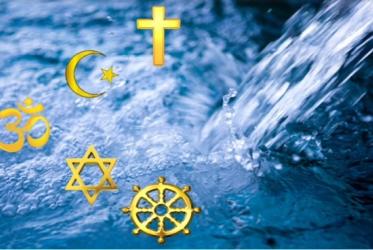Displaying 281 - 300 of 396
WCC leader offers Steve de Gruchy Memorial Lecture
24 April 2018
Photo exhibition on water justice in Latin America opens
23 April 2018
WCC reaffirms water as God’s gift and a human right
27 March 2018
‘Sokoni’ transforms marketplace into mission
13 March 2018
2018 Lenten campaign “Seven Weeks for Water” begins in Colombia
15 February 2018
Seven weeks of Lent highlight water justice in Latin America
12 February 2018
Protect the Amazon, urges WCC statement
22 November 2017
Re-engineering life forms: Church forum raises concerns
09 November 2017
Responsible agriculture investments theme of WCC session
16 October 2017
Forum strengthens ecumenical commitment to diakonia
12 October 2017
Emily Welty: tide of hope for a world free from nuclear weapons
19 September 2017
“Energy is a gift of God”
06 September 2017
WCC holds public event at World Water Week in Stockholm
25 August 2017




